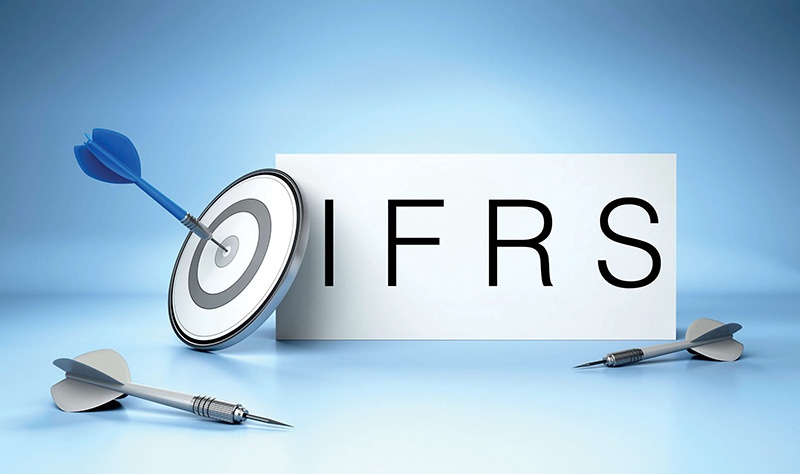Vietnam on cusp of financial reporting standards upgrade
 |
| The country is ever closer to incorporating global standards in financial reporting, which some companies in Vietnam already utilise, Photo: Shutterstock |
International Financial Reporting Standards (IFRS) were established in 2001 and remain the world’s most common accounting standard. There are several benefits to enforcing this international norm, including greater openness and comparability of financial reporting.
Accountants in Vietnam, however, have been governed by the Vietnamese Accounting Standards (VAS), which were issued between 2001 and 2005 by the Ministry of Finance (MoF) based on the International Accounting Standards (IAS) with certain revisions to match the domestic circumstances.
 |
| Lam Thi Ngoc Hao, Partner - Head of IFRS Conversion Consulting KPMG Vietnam The conversion of IFRS is a big project with far-reaching effects across many departments of an enterprise. Business leaders should assess the impacts of this transformation and plan the transition early to ensure success while minimising the impact on day-to-day business operations. Consulting firms like KPMG are always ready to accompany businesses on this journey. |
“Having not been updated since its release, the VAS lacks a number of upgrades and advancements. A push to implement IFRS and align the pair was launched by the MoF as a result of this,” KPMG Vietnam assessed.
The greatest distinction between the two standards is that IFRS is principles-based, whereas VAS is rules-based. This nature makes the former more flexible.
With the adoption of new accounting standards, Vietnamese financial market will be more integrated into regional and global markets. However, experts expressed their concerns over IFRS conversion involving more than a technical accounting issue. The switch from VAS to IFRS will have a considerable influence on the way a company’s day-to-day operations are managed, and may even have an impact on the reported profitability.
On the other hand, some domestically-run corporations have already implemented IFRS, along with their VAS-based financial reporting standard for local governors. These forward-thinking organisations, notwithstanding, could bear the risks of short-term losses in order to comply, according to Pham Quoc Viet, general director of consultancy MACT Vietnam.
Property behemoth Novaland Investment Group, for instance, issued $300 million in international convertible bonds without warrants and collateral to foreign financiers in July 2021. The bonds were listed on the Singapore Stock Exchange, following in the footsteps of its own prior successful international bond issuance in 2018.
A representative from Novaland told VIR that to meet stringent requirements and world-class criteria, the property group has already published its IFRS-based statements, along with its VAS version, for almost three years.
“As a worldwide accounting language, IFRS aids us in the facilitation of cross-border financial transactions at lower costs and with more significant transparency. This is of the utmost importance as Novaland aims to enhance its foothold on a global scale,” the representative said. “The conversion journey is not an easy task, but it is rewarding.”
On the same note, Phu Nhuan Jewelry was one of the first non-financial firms to convert financial statements. The company’s finance head, Nguyen Thanh Liem, claimed its goal is to become an Asian-renowned jewellery company.
“Our vision is not confined to a specific geographic area of Vietnam. Thus, IFRS would be a significant milestone in our path to Asia,” he said.
A spokesperson from FE Credit also told VIR that the company is well-prepared to embrace IFRS, citing its technology infrastructure and personnel training as examples.
A source from Coca-Cola Vietnam also revealed that many foreign-invested enterprises would implement IFRS, particularly those from the EU. However, any US-headquartered publicly-traded corporation like Coca-Cola must adhere to the US GAAP principles – a commonly recognised set of rules and procedures designed to govern corporate accounting and financial reporting in the States.
Being more principles-based, IFRS, arguably, represents and captures the economics of a transaction better than GAAP, as cited by Investopedia.
According to a survey conducted by the State Securities Commission, Hanoi Stock Exchange, and Ho Chi Minh Stock Exchange on 149 publicly traded companies, nearly 80 per cent of them stated that they were interested in and would implement IFRS as the advantages were prevalent. However, only 2.7 per cent of companies had done so, and 10.7 per cent planned to do so in the short run.
| In March 2020, the Ministry of Finance approved the adoption of financial reporting standards in Vietnam, aiming at achieving two goals: to set up the roadmap and support the adoption of IFRS, and to issue and implement the Vietnamese Financial Reporting Standards. The preparation phase took place within 2020-2021, during which the Vietnamese translations of IFRS standards, as well as training and guidelines for IFRS implementation, were published. After that, the approved roadmap to the adoption of IFRS in Vietnam will be divided into two stages: voluntary adoption (2022-2025) and compulsory adoption (2025 onward), with different regulations applied to different groups of enterprises. The adoption of IFRS, either voluntary or compulsory, must be applied consistently throughout the financial year. From 2025 onward, the adoption of Vietnamese reporting standards will be required for all enterprises, except for those already adopting IFRS or VAS for micro-enterprises. The adoption of IFRS, if properly put into place, is expected to drive significant benefits in terms of human, process and operation efficiency. Many experts believe that early planning and adoption of IFRS will be to the enterprise’s best advantage, by implementing it at their own pace, avoiding potential human-resource-related issues, increasing competitiveness, and attracting more foreign investments. |
| KPMG Vietnam, in partnership with Vietnam Investment Review, is hosting a forum titled “IFRS Day: The Future of Finance in Vietnam”. The featured panel discussions will review the progress of IFRS adoption in the country in the past two years, benefits and challenges awaiting companies and financial institutions, as well as possible solutions and directions of legislative and regulative bodies. Topics covered in the forum include benefits for companies and financial institutions upon the adoption of IFRS, the impact of IFRS conversion on finance and accounting in Vietnam, challenges and solutions for companies and financial institutions, and the direction from legislative and regulative bodies. The 2-hour forum will take place at 9am on March 16 and will be live-streamed on Dau Tu and VIR’s websites and Facebook fanpages. The forum will see the participation of: Dang Quyet Tien – Director general of Corporate Finance, Ministry of Finance Trinh Duc Vinh – Deputy director of Accounting and Auditing Policy, Ministry of Finance Vu Chi Dung – Director general of International Cooperation, State Securities Commission of Vietnam Nguyen Hong Van – Director general of Finance and Accounting, State Bank of Vietnam
Dang Huynh Uc My – Vice chairwoman of the Board, Thanh Thanh Cong - Bien Hoa JSC Nguyen Thuy Minh Chau – Head, ACCA Vietnam Ngo Quang Trung – CEO, Viet Capital Bank Nguyen Thanh Nghi – Partner of Audit Services and IFRS Conversion Consulting, KPMG Vietnam To send questions to the speakers, viewers can scan the QR code or visit https://forms.office.com/r/ViDnduuJNV |
What the stars mean:
★ Poor ★ ★ Promising ★★★ Good ★★★★ Very good ★★★★★ Exceptional
 Tag:
Tag:
Related Contents
Latest News
More News
- KPMG launches tariff modeller in Vietnam to navigate US tariff risks (July 29, 2025 | 12:11)
- Removing hidden barriers to unlock ASEAN trade (June 29, 2025 | 11:31)
- New report charts path for Vietnam’s clinical trial growth (May 21, 2025 | 08:58)
- TTC Agris strengthens market position with investment in Bien Hoa Consumer JSC (May 19, 2025 | 10:14)
- World Bank to help SBV build shared database for banking industry (April 09, 2025 | 08:55)
- New trade alliances and investment hubs are redefining global power dynamics (April 03, 2025 | 17:00)
- ACCA and KPMG forge path for business leaders to pioneer ESG excellence (March 07, 2025 | 10:09)
- VietBank signs MoU with KPMG (February 26, 2025 | 18:47)
- Warrick Cleine MBE: an honour for services to British trade and investment in Vietnam (December 31, 2024 | 20:16)
- KPMG report offers fresh insight into leveraging AI (December 24, 2024 | 09:23)





















 Mobile Version
Mobile Version